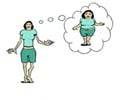A new study has claimed that peer pressure is making teen-aged boys use tanning booths, take diet pills and have their bodies waxed, even though they know it's unhealthy.
A new study has claimed that peer pressure is making teen-aged boys use tanning booths, take diet pills and have their bodies waxed, even though they know it's unhealthy.
Dr. Jay Yoo, a Baylor University assistant professor of fashion merchandising studied 155 boys, with an average age of 14.3 years, in seven schools in the eastern United States, to reach the conclusion.Jhe said: "I studied what kids are teased about. If anyone looks different, people tease you. Probably boys who have acne would become really self-conscious. There are cultural differences, but smooth skin is highly desired, and that may translate into other parts of the body.
"Skin tone also can represent the class of a person. Skin that is dark brown or bronze is more ideal than pale. Tanning as a fashion trend is a relatively new phenomenon. A tan now is considered a sign of the leisure class.
"As a result, the incident of skin cancers has risen dramatically over the past century."
The expert insisted that young boys live in a constant pressure to look good and fit, which leads them to diet pills.
He added: "They may view being slim as healthy, while being overweight is viewed as unhealthy. Taking diet pills is merely considered as a means to achieve slimness.
Advertisement
Yoo said: "Boys used to use what was available in the bathroom cabinet. But now it's aromatherapy and salon products, in which brand image as well as specific information is highlighted for adolescent consumers.
Advertisement
He concluded: "Until now, little research has been done about adolescents' appearance. Adolescence is when they develop shopping patterns and appearance, and those who engage in risky behavior continue into adulthood."
Yoo's study has been awarded Best Paper in the psychological/social category by the International Textiles and Apparel Association.
The study will be published in Adolescence, a quarterly international journal, in 2010.
Source-ANI
RAS















